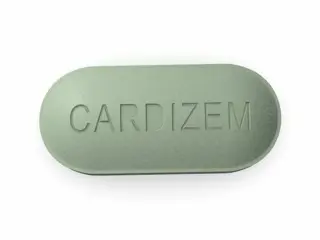| Package | Dosage | Price | Price per Dose | |
|---|---|---|---|---|
| Dosage: 30mg | ||||
| 360 pill | 30mg | £197.33 | £0.55 | |
| 270 pill | 30mg | £155.32 | £0.58 | |
| 180 pill | 30mg | £110.38 | £0.62 | |
| 120 pill | 30mg | £82.05 | £0.68 | |
| 90 pill | 30mg | £66.42 | £0.73 | |
| 60 pill | 30mg | £47.86 | £0.79 | |
| 30 pill | 30mg | £25.39 | £0.85 | |
| Dosage: 60mg | ||||
| 360 pill | 60mg | £270.60 | £0.75 | |
| 270 pill | 60mg | £206.12 | £0.76 | |
| 180 pill | 60mg | £138.72 | £0.77 | |
| 120 pill | 60mg | £94.75 | £0.79 | |
| 90 pill | 60mg | £75.21 | £0.83 | |
| 60 pill | 60mg | £51.77 | £0.87 | |
| 30 pill | 60mg | £28.32 | £0.93 | |
| Dosage: 90mg | ||||
| 360 pill | 90mg | £400.54 | £1.11 | |
| 180 pill | 90mg | £209.06 | £1.16 | |
| 120 pill | 90mg | £141.65 | £1.18 | |
| 90 pill | 90mg | £111.36 | £1.24 | |
| 60 pill | 90mg | £78.15 | £1.30 | |
| 30 pill | 90mg | £42.00 | £1.40 | |
| Dosage: 120mg | ||||
| 360 pill | 120mg | £443.52 | £1.23 | |
| 270 pill | 120mg | £339.96 | £1.26 | |
| 180 pill | 120mg | £232.50 | £1.29 | |
| 120 pill | 120mg | £162.16 | £1.35 | |
| 90 pill | 120mg | £127.97 | £1.42 | |
| 60 pill | 120mg | £90.85 | £1.51 | |
| 30 pill | 120mg | £56.65 | £1.89 | |
| Dosage: 180mg | ||||
| 270 pill | 180mg | £485.53 | £1.80 | |
| 180 pill | 180mg | £332.15 | £1.85 | |
| 120 pill | 180mg | £223.71 | £1.87 | |
| 90 pill | 180mg | £176.82 | £1.96 | |
| 60 pill | 180mg | £125.04 | £2.09 | |
| 30 pill | 180mg | £68.38 | £2.29 | |

Diltiazem Description
Understanding Diltiazem
Diltiazem is a medication widely used to manage various cardiovascular conditions. It belongs to a class of drugs called calcium channel blockers. This medication works by relaxing the muscles of the heart and blood vessels. As a result, it helps to lower blood pressure, reduce the workload on the heart, and improve blood flow. Diltiazem is commonly prescribed for conditions such as hypertension, angina pectoris, and certain types of arrhythmias. Its effectiveness and safety profile make it a popular choice among healthcare providers.
How Diltiazem Works
The primary mechanism of diltiazem involves blocking calcium ions from entering the cells of the heart and blood vessel walls. This action causes a decrease in the force of heart contractions and dilates the arteries. As a result, it reduces the resistance the heart must pump against, which helps to lower blood pressure. For angina, this improved blood flow reduces chest pain caused by reduced oxygen supply to the heart muscle. Its ability to influence electrical conduction in the heart makes it particularly useful for certain arrhythmias, helping to regulate irregular heartbeats.
Usage and Dosage
Patients should follow their healthcare provider’s instructions carefully when taking diltiazem. The medication is usually available in tablet form, taken orally. The dosage depends on the condition being treated, the patient’s response, and other individual factors. Typically, it is taken once or twice daily. It’s important not to adjust the dose without medical advice. Regular monitoring of blood pressure and heart rate is recommended during treatment to ensure efficacy and safety. Patients should inform their doctor about other medications they are taking to avoid potential drug interactions.
Potential Benefits of Diltiazem
Many patients experience significant benefits from diltiazem. Its ability to control high blood pressure helps prevent strokes, heart attacks, and kidney problems. For angina, it reduces the frequency and severity of chest pain episodes, improving the patient’s quality of life. Additionally, for certain arrhythmias, it can restore normal heart rhythm and reduce symptoms like palpitations and dizziness. Its dual action on blood vessels and heart conduction makes it a versatile medication for various cardiovascular issues.
Possible Side Effects and Risks
Although diltiazem is generally well tolerated, some users may experience side effects. Common side effects include dizziness, headache, flushing, and swelling of the ankles or feet. Some individuals might notice low blood pressure or a slowed heartbeat. In rare cases, allergic reactions or more severe cardiovascular issues can occur. Patients with certain conditions, such as severe heart failure or low blood pressure, should use diltiazem cautiously. It’s essential to report any unusual symptoms to a healthcare provider promptly.
Precautions and Warnings
Before starting diltiazem, patients should provide their healthcare provider with a full medical history, including other medications and underlying health conditions. This helps to prevent adverse interactions and complications. Pregnant or breastfeeding women should consult their doctor to weigh the benefits and risks. Patients should avoid drinking grapefruit juice while taking diltiazem, as it can increase the medication’s effects. Regular check-ups are important to monitor the effectiveness and detect any side effects early.
Conclusion
Diltiazem remains a valuable medication in the treatment of cardiovascular conditions. Its ability to lower blood pressure, relieve angina, and control arrhythmias makes it a versatile choice for many patients. However, like all medications, it requires proper use and monitoring. Patients should communicate openly with their healthcare provider to ensure safe and effective therapy with diltiazem. Understanding its functions, benefits, and potential risks can help users make informed decisions for their heart health.
